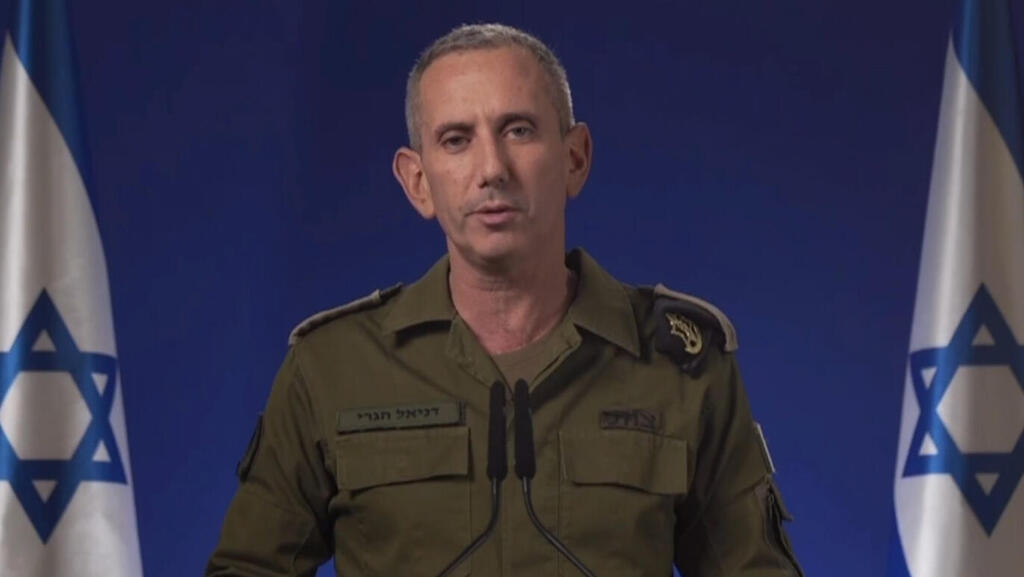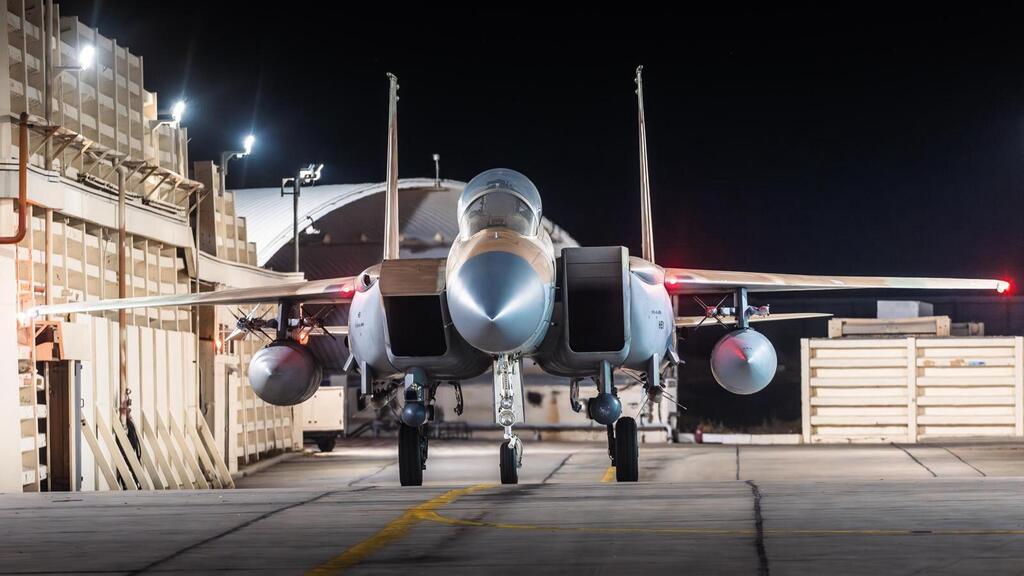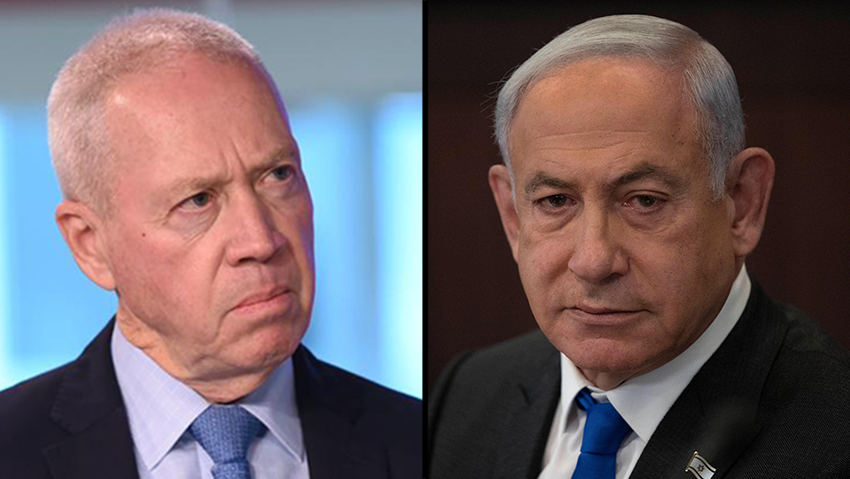Getting your Trinity Audio player ready...
IDF spokesperson Rear Admirial Daniel Hagari said in a statement on Sunday following an unprecedented attack against Israel in which Iran launched hundreds of ballistic missiles drones, and cruise missiles toward the country, that "99% of the threats that were launched were intercepted."
Hagari revealed that a number of ballistic missiles exploded in the area of the Nevatim Air Force base in southern Israel. "The missiles caused minor damage only; the base is operational. Iran thought it would paralyze the base and thus harm our aerial capabilities, but it failed," he said.
"This is a very significant strategic achievement," Hagari added. "None of the 170 drones launched by Iran entered Israeli territory. Dozens of them were intercepted by Air Force fighter jets and Israeli and foreign air defense systems. None of the 30 cruise missiles Iran launched entered Israeli territory. Some 25 of them were intercepted by Air Force fighter jets outside the country's borders."
Israel, aided by the United States, the UK, and Jordan reportedly intercepted most of the launches.
"The incident isn’t over; we’re prepared for further threats," Hagari said, noting there were no changes made to IDF Home Front Command guidelines "Restrictions are still in place and educational activities, youth camps and trips are prohibited. We’ll update the public on any future changes.”
In a similar manner to Prime Minister Benjamin Netanyahu and Defense Minister Yoav Gallant, Hagari didn’t explicitly threaten retaliation against Iran, but noted the IDF chief of staff "approved plans for the future, which were presented to senior officials," and said that the military "is considering options and doing everything necessary to protect Israeli citizens."
Netanyahu himself responded with a four-word Hebrew message on his X (formerly Twitter) account, which translates to: "We intercepted, we repelled, together we shall win."
The unusual attack led to an unprecedented aerial battle between fighter jets, Arrow air-defense systems, and the David’s Sling anti-missile system against the Iranian launches. Iran claimed it considered the attack a conclusion to its retaliation against Israel, which it blamed for the death of several of its officers in a strike in Damascus, as long as Jerusalem “doesn't make another mistake."
Defense Minister Yoav Gallant said after a situational assessment on Sunday, "The IDF has impressively foiled the attack. Together with our American and other partners, we managed to limit damage to Israeli territory to a minimal degree, a most impressive achievement accomplished by the IDF with distinction."
According to Gallant, "the whole world saw who Iran is tonight - a terrorist state that attacks Israel from a distance of 1,500 km away and tries to activate all of its proxies. But the world also saw the power of a coalition and how Israel, together with the United States and other countries, stands and blocks this attack in an unprecedented manner."
"The operation isn’t over yet; we need to be vigilant and attentive to the IDF's instructions and Home Front Command directives and be prepared for any scenario, but at the same time - we intercepted the most significant threats, and did so very successfully,” he added.







